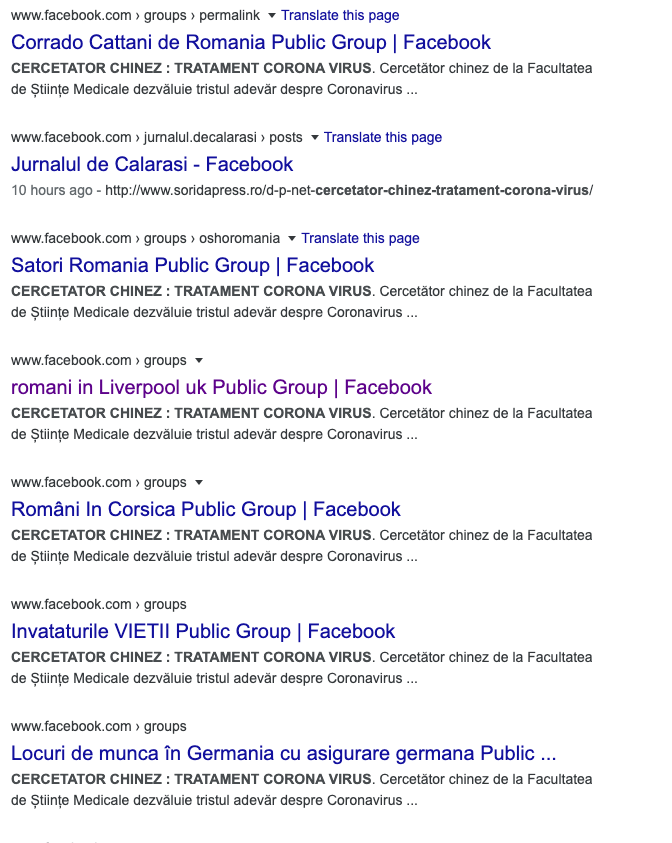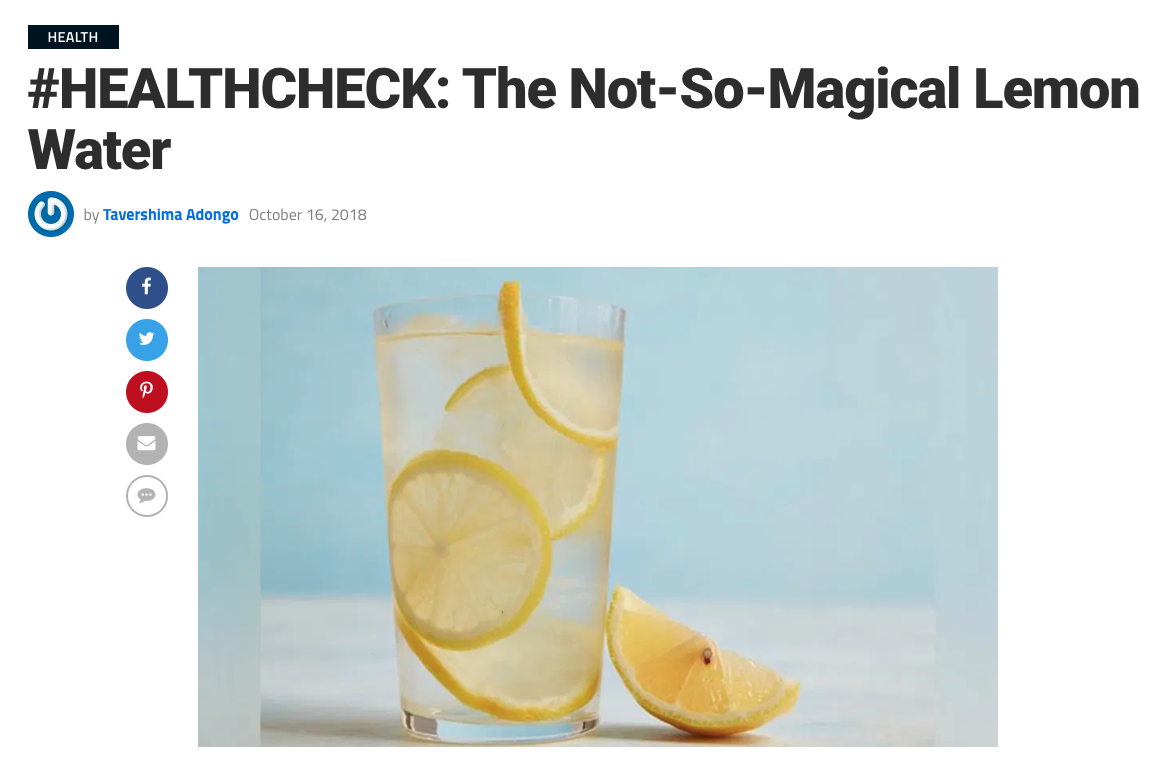
Experts say Facebook is struggling to stop dangerous misinformation about coronavirus in languages other than English, after Romanian-language posts saying lemons kill the virus spread like wildfire on the site over the past couple of days.
After being contacted by BuzzFeed News, Facebook removed several viral posts in Romanian claiming to share advice from a "Professor Chen Horin" at the nonexistent "Beijing Military University" saying drinking hot water with lemon slices can kill the virus.
The message is a subtle variation on a long-running online meme giving "advice" from the same professor saying lemons can kill cancer cells. This has had the widest reach on Facebook in Spanish.
The more recent twist — saying lemons kill the coronavirus — has also recently had some traction in English, with the most shared post by a popular Ugandan musician.
The message on an Italian-language website has had hundreds of thousands of views according to data provided by the website Viral Magazine, but similar posts on Facebook have had smaller reach, suggesting Facebook is onto the problem.
The same message in Romanian, however, had tens of thousands of shares across multiple posts, which were removed when reported to Facebook by BuzzFeed News.
“Facebook have committed enormous amounts of resources and funding into combatting misinformation in larger countries, but this can come at the cost of these smaller countries," said William Dance, a linguistics and disinformation expert at Lancaster University.
Dance noted that Romania has low levels of digital skills and media literacy, according to EU figures, so the consequences of this sort of misinformation could be dangerous.
Claire Wardle, head of nonprofit First Draft News, agreed that misinformation is more likely to go viral in languages spoken by smaller numbers of people.
"This is a problem we continuously see," she told BuzzFeed News.
The post had been shared in dozens of Facebook groups for Romanians living abroad.

Facebook has taken measures to combat the spread of misinformation, such as incorporating pop-ups which direct people to official sources and removing posts which spread dangerous medical advice.
A spokesperson told BuzzFeed News: “Facebook is committed to ensuring everyone using our platforms can access accurate information, and we’ve removed the posts in question for violating our policies."
While it is easy for Facebook to remove one misleading post after it has been reported, it is much harder to root out misinformation when it is copied and pasted across the site, especially when translated into other languages.
"Once you've identified it you can find it with the right keywords, but it ends up feeling like whack-a-mole," said Claire Wardle. "As you take some down, more pops up."
In the UK general election in December, a Facebook user falsely claimed that a newspaper image of a boy sleeping on a hospital floor was staged in order to embarrass Boris Johnson's Conservative party.
Many other users copied and pasted an identical message to their own personal accounts, as well as groups and pages, making it virtually impossible to root out the misinformation entirely.
The myth of lemons as a miracle cure coming from "Professor Chen Horin" predates the coronavirus outbreak.
For example, in 2018, a Nigerian fact-checking site debunked an almost identical message circulating on WhatsApp saying lemons could cure cancer, also attributed to "Professor Chen Horin".

In 2019, the same post about lemons and cancer went viral on Spanish-language Facebook pages. One post has almost 400,000 shares.
At some point over the last few weeks, the same text was subtly tweaked to be about coronavirus rather than cancer, and translated into multiple languages.
An English-language post on the page of a Ugandan musician called Pallaso mentions the new outbreak and, referencing Professor Horin once again, encourages people to "use as much natural Vitamin C as possible" to strengthen their immune system.
It does not explicitly say lemons cure the coronavirus, but it does say they cure cancer.
These posts show how hard it is to combat misinformation during a dramatic unfolding news story like the coronavirus.
It's not a case of deleting one bad post — misinformation changes, and gets translated, as it bounces around the internet.
Slow enforcement of Facebook's policies during the coronavirus outbreak "could lead to real-world harm" said Chloe Colliver of the Institute for Strategic Dialogue, a think tank.
"These examples from Romania point to the gaps in enforcement that remain, despite the relevant policies now being in place."
Facebook has previously admitted it did not do enough to prevent the incitement of violence on the site in Myanmar, and expanded its number of Burmese-speaking moderators as a result.
It's hard enough to identify and bury misinformation in English, particularly when users copy and paste rather than simply clicking "share".
It's even harder to completely get rid of harmful medical advice when it is translated into multiple languages and posted on multiple groups and pages, by Facebook users thousands of miles apart.
A Facebook spokesperson added: "In addition to removing harmful misinformation we are also connecting people to accurate information around coronavirus in a number of ways. Anyone around the globe searching for coronavirus related content on Facebook, or clicking on a hashtag on Instagram, is shown a pop up pointing them to the latest official guidance from experts including WHO and local health organisations.
"We are also connecting people in high risk countries directly from their News Feed with authoritative information served to them in their chosen language setting, and we're continuing to expand this across the world.”


